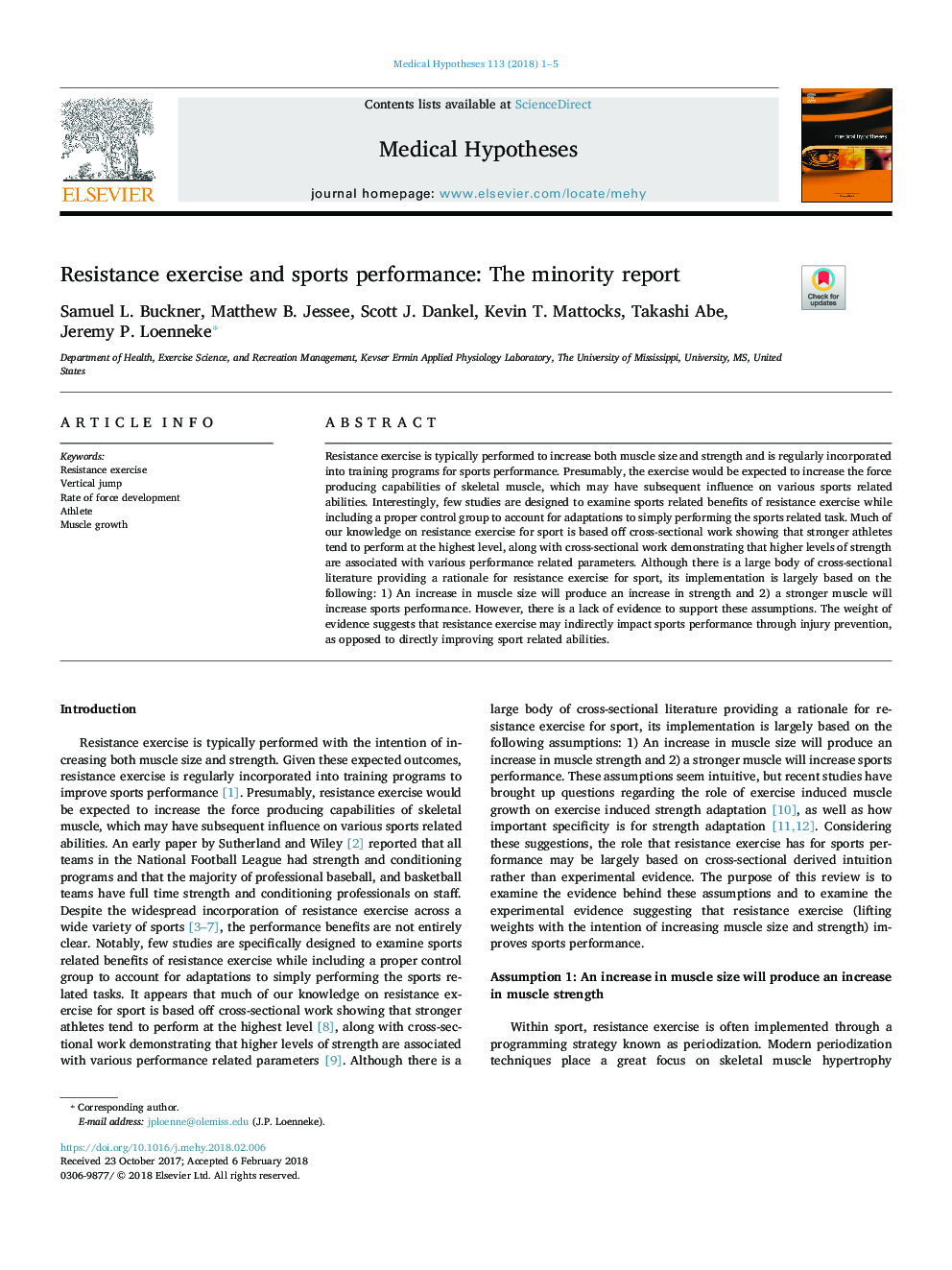| Article ID | Journal | Published Year | Pages | File Type |
|---|---|---|---|---|
| 8515846 | Medical Hypotheses | 2018 | 5 Pages |
Abstract
Resistance exercise is typically performed to increase both muscle size and strength and is regularly incorporated into training programs for sports performance. Presumably, the exercise would be expected to increase the force producing capabilities of skeletal muscle, which may have subsequent influence on various sports related abilities. Interestingly, few studies are designed to examine sports related benefits of resistance exercise while including a proper control group to account for adaptations to simply performing the sports related task. Much of our knowledge on resistance exercise for sport is based off cross-sectional work showing that stronger athletes tend to perform at the highest level, along with cross-sectional work demonstrating that higher levels of strength are associated with various performance related parameters. Although there is a large body of cross-sectional literature providing a rationale for resistance exercise for sport, its implementation is largely based on the following: 1) An increase in muscle size will produce an increase in strength and 2) a stronger muscle will increase sports performance. However, there is a lack of evidence to support these assumptions. The weight of evidence suggests that resistance exercise may indirectly impact sports performance through injury prevention, as opposed to directly improving sport related abilities.
Related Topics
Life Sciences
Biochemistry, Genetics and Molecular Biology
Developmental Biology
Authors
Samuel L. Buckner, Matthew B. Jessee, Scott J. Dankel, Kevin T. Mattocks, Takashi Abe, Jeremy P. Loenneke,
